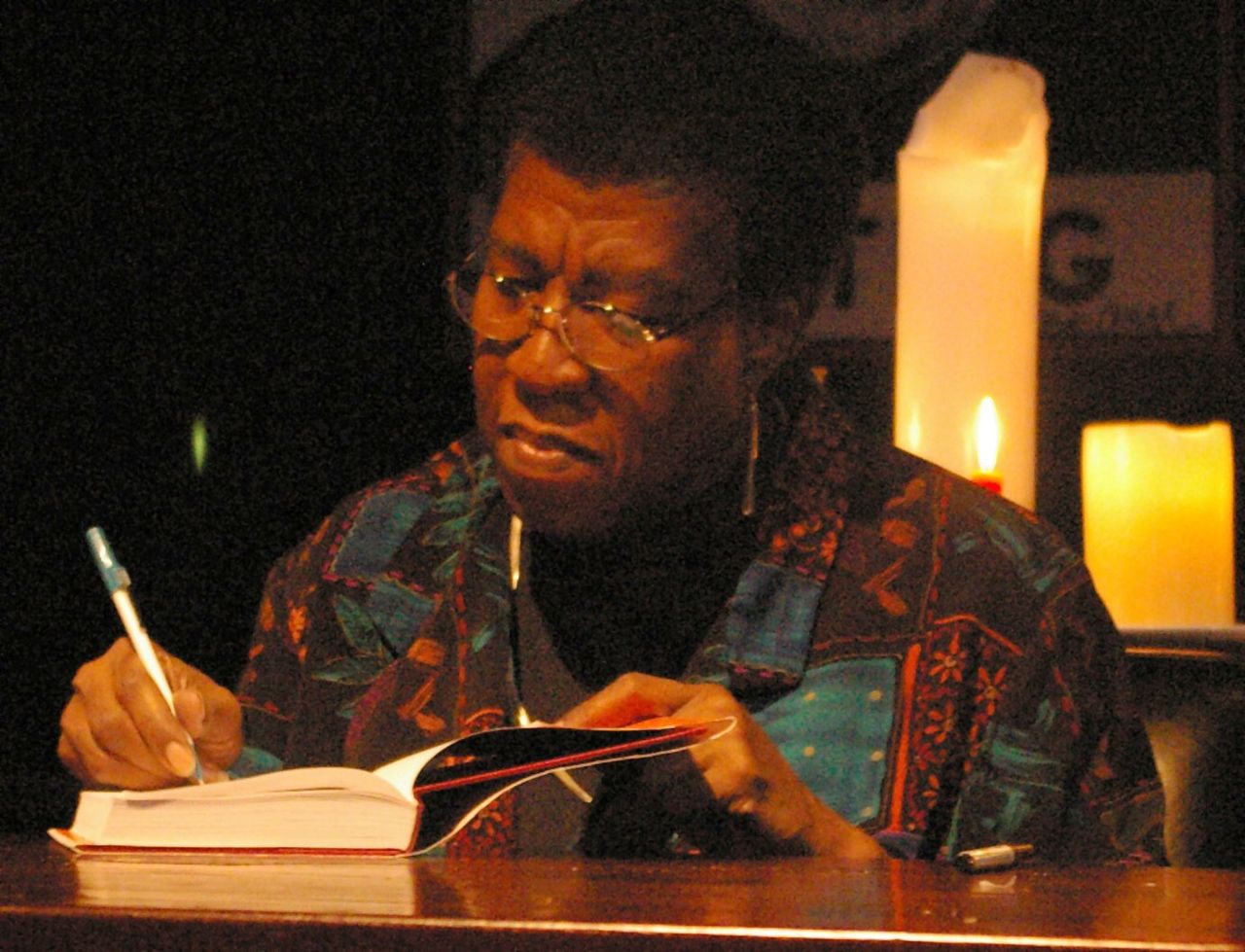|
Craig White's authors & texts |
 |
Octavia Butler (1947-2006) The Parable of the Talents (1998) |
 |
|
Award-winning sf author Octavia Butler originally planned Parable of the Sower (1993) as the first installment in a trilogy, but only one more novel in the planned series—The Parable of the Talents—appeared in 1998. Parable of the Talents shifts perspective from Lauren Olamina to that of Lauren's and Bankole's daughter Larkin, who tells her own story and reconstructs the life and career of her mother (from whom she was forcibly separated) from diaries Lauren left behind. Larkin's attitude to her mother is conflicted by the fact that Acorn, the utopian community founded by her mother (and Larkin's birthplace), was destroyed by heavily armed Christian fundamentalists, who killed Bankole and other adults and kidnapped the community's children to be raised under the auspices of "Christian America," a new government whose president resembles a mix of historical President Ronald Reagan (1980-88) and evangelical leader Rev. Pat Robertson, who ran for president in 1988. "Christian America" (the new nation's name) is the only culture Larkin remembers, but its repressiveness, reproductive anxiety, and sexual exploitation—like Margaret Atwood's famous fundamentalist dystopia in The Handmaid's Tale (1974)—make her curious about her mother, who continues (off-stage) organizing Earthseed's underground resistance. Larkin learns that Lauren has attempted several times to find and liberate her. Eventually "Christian America" disintegrates under its own stresses, and by the novel's end Earthseed has revived as an alternative community that is staging spaceflights to other planets in the Solar System. Qualitative assessment: Parable of the Talents faces the challenge of most sequels—in this case, offering the same combination of Young Adult Dystopian distress and survival plus social-commentary that made Parable of the Sower compelling. Talents partly solves this challenge by shifting the story's grounds and expectations. The continuing stories of Acorn, Earthseed, and Lauren are told from a distance. Instead of Parable of the Sower's journeys and open-air adventures, the action in Talents is more psychological and reflective. As a result, this novel is less of a page-turner than Parable of the Sower, but its truths feel more authentic, thoughtful, and intimate. Parable of the Talents won the 1999 Nebula Award for Best Novel. The Nebula Awards are the most prestigious for Science Fiction, organized by the Science Fiction and Fantasy Writers of America. |
|
![]()
Parable of the Trickster—unfinished third installment in Butler's Parable trilogy
After completing Parable of the Talents, Butler began writing her trilogy's final text, to be titled Parable of the Trickster, work on which she mentioned in several interviews. However, writers' block and health issues prevented Butler from completing the n../terms/T/trickster.htmovel, and she completed only one additional novel (Fledgling) before her death at 58 in 2006.
The article linked below reviews the series and Butler's manuscripts toward Parable of the Trickster that are now housed in the Huntington Library in Los Angeles:
Gerry Canavan, “'There’s Nothing New / Under The Sun, / But There Are New Suns': Recovering Octavia E. Butler’s Lost Parables." Los Angeles Review of Books (9 June 2014).
Near its end the article briefly surveys additional sequels Butler partly planned, and the limits of her attitudes toward humanity's ability to achieve utopia.




